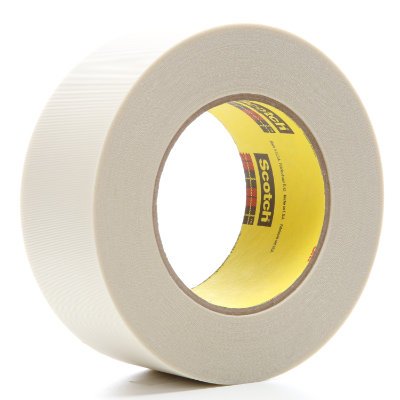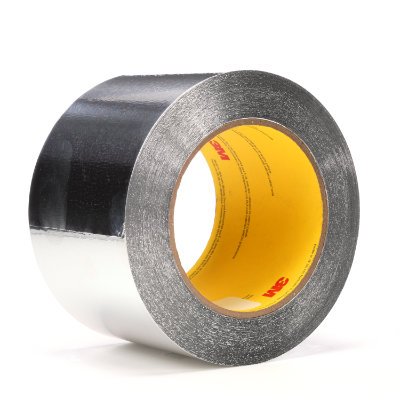How to Choose the Right PSA Tapes as an Electrical Insulator
Industrial pressure sensitive adhesive (PSA) tapes are often used in electrical applications that require the backing material of these types of tapes to be able to insulate against electrical currents. These types of electrical insulation tapes vary in the materials used, offering differing levels of insulation for applications that include electronics assembly, motors, coil wrapping, etc.
How can you choose the right PSA tape for your electrical insulation application? What should you consider? There are three main factors to consider: dielectric strength, thermal class, and mechanical strength. This will allow you to choose a backing material that performs well in your environment.
Considering Dielectric Strength
Dielectric strength is the measurement of a material’s electrical strength as an insulator. It’s the maximum voltage a material can withstand before losing its insulating properties. Higher dielectric strength means the material can withstand a higher voltage. Once the voltage exceeds the material’s dielectric strength, the material will fail as an insulator in its application, instead becoming a conductor that allows current to flow through it. This process is known as dielectric breakdown. The voltage amount that causes dielectric breakdown in a material is known as the breakdown voltage, which can cause catastrophic failure in your application.
ASTM D149 and IEC 60243-1 are the standardized testing procedures for dielectric strength in materials. The industry standard for pressure sensitive adhesive coated tapes for electrical and electronic applications is ASTM D1000.
Make sure you understand the dielectric strength of the carriers on the PSA tapes you are considering before choosing the best one for your application.
Considering Thermal Class and Operating Temperature
Thermal class is the classification that dictates the maximum operating temperature of materials. These classes include:
Class A: 105 °C
Class B: 130 °C
Class F: 155 °C
Class H: 180 °C
Class N: 200 °C
Class R: 220 °C
Why is this important for electrical insulation? Because the operating temperature of a given application can degrade the quality and performance of a material and reduce its lifespan, a process known as thermal aging. Your PSA tape can meet the dielectric strength requirements of your application, but if it does not meet the requirements of the operating temperature, it will ultimately fail.
Considering Mechanical Strengths
As with all PSA tapes selection, it’s critically important to consider the forces that will be acting on the tape as it’s used in the application. The mechanical strengths of the tape—how it handles dynamic and static stress—ultimately impacts how the tape performs, and for how long. These forces break down into four main categories:
Tensile stress: distributed equally over the entire joint, pulling in a straight line. The tape’s resistance to this is tensile strength.
Shear stress: a force directed across the adhesive tape, causing it to slide. The tape’s resistance to this is shear strength.
Cleavage stress: the stress placed on the edge of the tape’s joint. The tape’s resistance to this is cleavage strength.
Peel stress: also concentrated at one edge of the joint but applies when both substrates are flexible. The tape’s resistance to this is peel adhesion.
You can learn more about these forces and how they impact tape performance here.
Electrical Insulation PSA Tape Options
Saint-Gobain® offers a wide range of CHR® Electrical Grade Adhesive Tapes that are ideal for electrical equipment, motors, and generators. Many of these products are UL recognized components (UL 510) and come in different temperatures classes. The Insulating and Conductive Tapes offered by 3M™ are made from a broad range of backings and adhesives, allowing them to meet the requirements of different applications and operating environments. Some of the materials used in these types of tapes include:
Glass Cloth Tapes
Glass cloth PSA tape backings have high-temperature resistance and tensile strength. They offer excellent absorption of resins and varnishes on top of cut-through and edge-tear resistance. They can be used with acrylic and silicone adhesives and have a dielectric breakdown point of 3000 V.
Polyimide Tapes
Polyimide tapes, often referred to as Kapton(R) tapes, have a thin puncture-resistant backing and are great in high-temperature applications. They can be used with acrylic and silicone adhesives and have a dielectric breakdown point between 6000 and 7500 V.
PTFE Film
High temperature PTFE tapes, often referred to as Teflon(R) tapes are resistant to chemicals, have high arc resistance, and are free of carbonizing materials. They can be used with acrylic and silicone adhesives and have a dielectric breakdown point between 9500 and 15000 V.
Polyester
Polyester is a thin, durable film that can withstand high temperatures and chemical, solvent and moisture exposure. Sometimes referred to as Mylar(R), Polyester (PET) tapes are available in flame retardant and non-flame retardant versions, can be used with acrylic adhesives and aggressive rubber resin, and have a dielectric breakdown point between 5500 and 7000 V.
Filament
These tapes combine the dielectric strength of polyester film and mechanical strength of glass fibers. They are low stretch, high tensile and edge-tear resistance. They can be used with thermosetting rubber resin and acrylic adhesives and have a dielectric breakdown point between 3500 and 5500 V.
Epoxy
Epoxy film tapes are flame retardant and offer solder and puncture resistance. They are designed to reduce tape use by requiring fewer wraps than glass or cloth tapes. They can be used with thermosetting rubber resin and acrylic adhesives and have a dielectric breakdown point between 6500 and 8000 V.
EMI Shielding PSA Tapes
3M offers EMI Shielding Tapes designed for applications requiring reliable point-to-point electrical contact. These tape materials include copper, aluminum, embossed, and tin-plated, and can be used with solvent-resistant acrylic and conductive acrylic adhesives.






